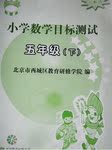题目内容
Parents, of course, will do everything they could to ________ their children from harm.
- A.defend
- B.convince
- C.overcome
- D.reduce
考查动词词义辨析。句意:父母当然会尽其所能来保护孩子免受伤害。defend“保护,保卫”;convince“使相信”;overcome“克服”;reduce“减少”。

 小学生10分钟应用题系列答案
小学生10分钟应用题系列答案 目标测试系列答案
目标测试系列答案The British are very polite and have good manners—they are never tired of saying “Thank you”,“I am sorry”, or “Excuse me.” They have good table manners. They enjoy their breakfasts and most of all the traditional tea around 4 or 5 o’clock.
The normal working week has five days. Factory workers usually start at 8 am and offices, shops and schools open at 9 am. Workers have 3 weeks’ holidays and professional workers(people with higher education ) have usually longer holidays (a month or more). Except these holidays they have public holidays: e.g. New Year’s Day, Good Friday, Easter Monday, Christmas Day and Boxing Day.
An average Englishman like to live in his own house. Houses are made of red bricks, stone and wood. The house usually has from 4 to 6 rooms, two floors, small front and back gardens. On the ground floor there is a hall, a kitchen, a living room with a fireplace and on the first floor there are parents’ and children’s bedrooms and a bathroom. The prices of houses depend on the area—the most expensive are the houses in London and South England (about 200,000 pounds); smaller houses in other areas may cost about 50,000 pounds.
Social Welfare—The National Health Service gives largely free treatment for everyone living in Britain. People can choose their family doctors. In case of emergency you can call the ambulance by dialing 999 from everywhere. Health centres are run by local authorities. About 7 percent of hospitals, dentists and family doctors work as private.
There are about 130 daily and Sunday newspapers and a lot of weekly papers and magazines. The oldest newspaper is The Times. Other famous newspapers are Daily Mirror, Daily Mail, Financial Times, etc.
【小题1】If you are a student in Britain, when do you begin to go to school?
| A.At 6 am . | B.At 9 am . | C.At 8:00 am . | D.At 9:30 am . |
| A.They have good manners when at table. |
| B.They always have the traditional tea around 4 or 5 am. |
| C.They love families and pets. |
| D.They feel very tired when they say “Thank you”,“Sorry ” or “Excuse me.” |
| A.A shop assistant. | B.A doctor. |
| C.A factory worker. | D.A nurse. |
| A.Phone his family doctor. | B.Take him to hospital. |
| C.Dial 999. | D.Find a doctor for him. |
Usually, when your teacher asks a question, there is only one correct answer. But there is one question that has millions of correct answers. That question is “What’s your name?” Everyone gives a different answer, but everyone is correct.
Have you ever wondered about people’s names? Where do they come from? What do they mean?
People’s first names, or given names, are chosen by their parents. Sometimes the name of a grandparent or other member of the family is used. Some parents choose the name of a well-known person. A boy could be named George Washington Smith; a girl could be named Helen Keller Jones.
Some people give their children names that mean good things. Clara means “bright”; Beatrice means “one who gives happiness”; Donald means “world ruler”; Leonard means “as brave as a lion”.
The earliest last names, or surnames, were taken from place names. A family with the name Brook or Brooks probably lived near a brook (小溪); someone who was called Longstreet probably lived on a long, paved road. The Greenwood family lived in or near a leafy forest.
Other early surnames came from people’s occupations. The most common occupational name is Smith, which means a person who makes things with iron or other metals. In the past, smiths were very important workers in every town and village. Some other occupational names are: Carter—a person who owned or drove a cart; Potter—a person who made pots and pans.
The ancestors of the Baker family probably baked bread for their neighbors in their native village. The Carpenter’s great-great-great-grandfather probably built houses and furniture.
Sometimes people were known for the color of their hair or skin, or their size, or their special abilities. When there were two men who were named John in the same village, the John with gray hair probably became John Gray. Or the John who was very tall could call himself John Tallman. John Fish was probably an excellent swimmer and John Lightfoot was probably a fast runner or a good dancer.
Some family names were made by adding something to the father’s name. English-speaking people added –s or –son. The Johnsons are descendants of John; the Roberts family’s ancestor was Robert. Irish and Scottish people added Mac or Mc or O. Perhaps all of the MacDonnells and the O’Donnells are descendants of the same Donnell.
1.Which of the following aspects do the surnames in the passage NOT cover?
|
A.Places where people lived. |
B.People’s characters. |
|
C.Talents that people possessed. |
D.People’s occupations. |
2.According to the passage, the ancestors of the Potter family most probably _______.
|
A.owned or drove a cart |
B.made things with metals |
|
C.made kitchen tools or containers. |
D.built houses and furniture. |
3.Suppose an English couple whose ancestors lived near a leafy forest wanted their new-born son to become a world leader, the baby might be named ________.
|
A.Beatrice Smith |
B.Leonard Carter |
|
C.George Longstreet |
D.Donald Greenwood |